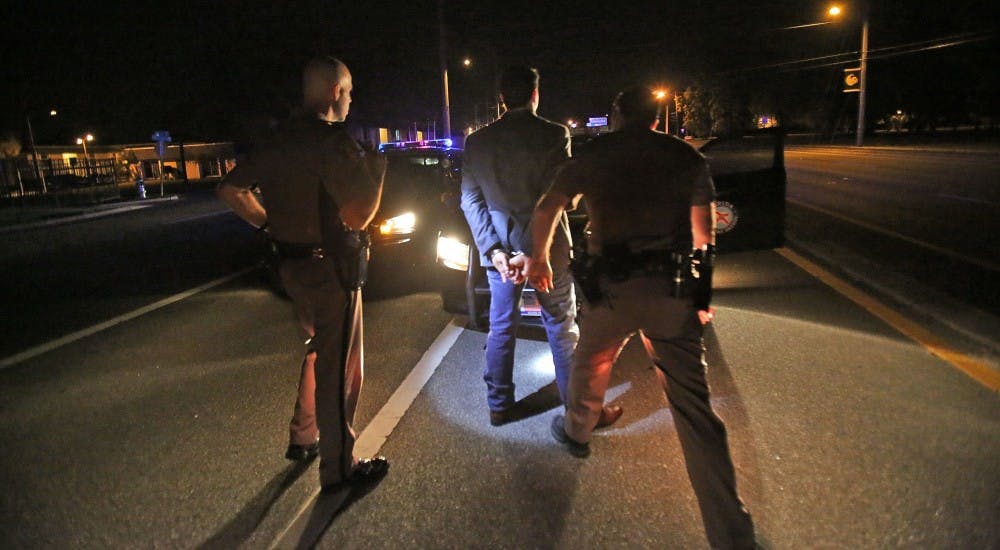Social Host Consequences
First Offense: Class B misdemeanor
Previous unrelated convictions: Class A misdemeanor
Alcohol-related death/injury: Level 6 felony
Upperclassmen could be arrested for providing minors with a place to drink due to a new Indiana law.
The social host law, which went into effect July 1, makes it illegal for adults to let minors drink in their homes, even if they aren’t providing the alcohol. It’s considered a Class B misdemeanor for the first offense, a Class A misdemeanor if the person has been convicted of something unrelated before and a level 6 felony if the alcohol causes death or serious injury to anyone.
Lisa Hutcheson, director of Indiana Coalition to Reduce Underage Drinking, who helped to pass the law, said they have been working on underage drinking issues for more than 18 years.
“We know that through our research that social host laws work as a deterrent [for underage drinking] and it was one of the gaps we noticed [in Indiana],” Hutcheson said. “This definitely filled that gap.”
Although the law applies to all adults, State Senator Pete Miller (R-Avon) said it would be difficult to implement on college campuses.
The University Police Department was not available for comment.
“I don’t condone underage drinking at any age, but [the law] would be a game-changer on a college campus because things are pretty different there [from high school],” Miller said. “It would make more of an impact, I would envision, for those still in high school. The dynamics on a college campus aren’t going to be changing just from this law.”
Miller said the change will mainly impact high school students.
“If a parent of a high school drinker is trying to do the right thing, they think, ‘I don’t want my son or daughter somewhere out there drinking, so I’ll just have them drink here’ and while that’s a well intention thought, the kids are still underage,” Miller said.
Miller said in the past when law enforcements have tried to enforce underage drinking, they have had cases that could not be prosecuted because there wasn’t proof that the adult provided the alcohol.
While they may not be able to prosecute adults for providing drinks, they can for providing minors a place to drink, he said.
Hutcheson said while this isn’t a solution to underage drinking, it is a way to educate parents and other adults about their roles and responsibilities when it comes to alcohol.
“We hear, somewhere every fall, of parents and adults who host parties and provide alcohol and take everyone’s keys, but someone still manages to get injured or unfortunately killed,” she said. “Hopefully this will deter underage drinking because there won’t be as many adults hosting parties.”
Lieutenant Al Williams of the Muncie Police Department said while he wasn’t familiar with the social host law, if anyone caught parents allowing their underage kids to drink, there would be consequences.
“We wouldn’t hesitate to charge the parents for that,” he said. “It’s not something that we would tolerate at all.”





